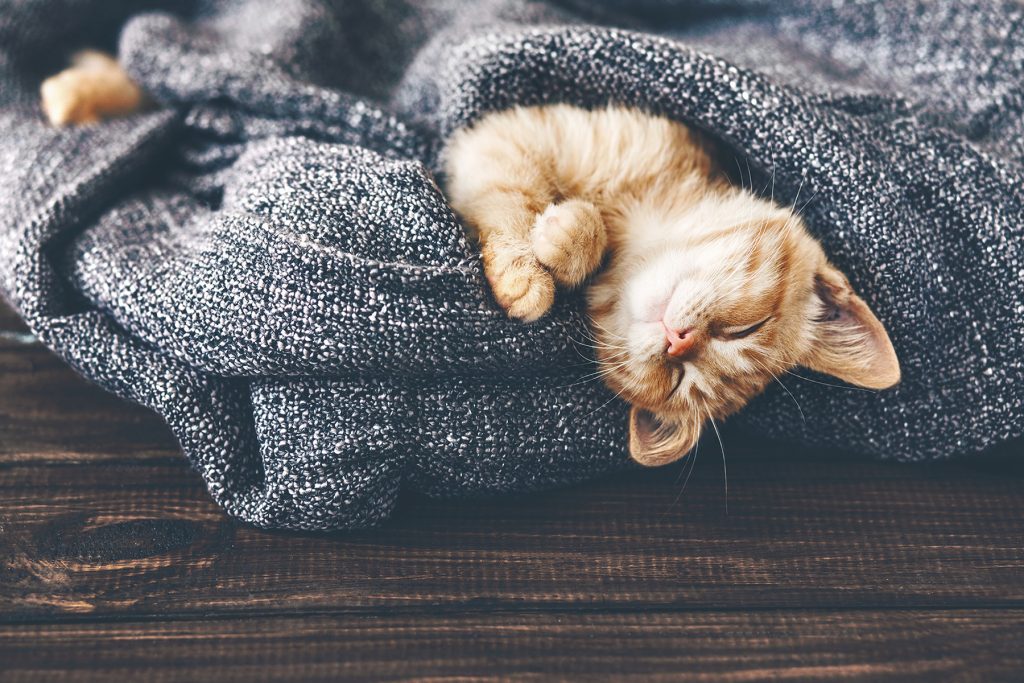While many cats are “house” cats, they still require some special attention during the summer months in order to keep them healthy, safe and content. Visit your Global Pet Foods store for product recommendations and more tips.
Water, water, everywhere!
Your cat needs to drink lots of water when the temperature heats up. Please ensure that there’s always fresh water available in several different shaded spots throughout your home, and on your porch or in the backyard if your cat spends time outdoors.
If your home is not air-conditioned, and you’re away during the day, freeze a plastic dish of water overnight, and put it out in the morning, in addition to the regular water dish. This way, your cat will have a continual source of cool water throughout the day. A water fountain with an add-on reservoir is a great alternative to a water bowl and it does a better job of providing your cat with a constant source of fresh water.
It’s extremely important to keep senior cats hydrated as they tend to have compromised kidney and thyroid functions. Since they tend to nap a lot, this means they’re not eating or drinking as often as they should. Ensure that you or someone in your household encourages them to drink and eat a few times through the day.
On really hot days, wipe your cat down with a cool washcloth or towel, especially if your home is not air-conditioned.
Cool place to rest:
Make sure that your cat has access to areas with tile floors or rooms that don’t get much sun. Cats will naturally gravitate to the most comfortable sleeping area that they can find and a bed that’s comfortably cool can really hit the spot. Make a “cooling” bed by placing a packet of frozen peas under a blanket or your cat’s bed cover. Your cat will enjoy this cool spot.
Grooming:
Shedding is considered a sign of health in cats, and your cat will shed to remove dead hair from her body. Since dead hair can cause skin irritation, it needs to be removed. It’s also important to ensure that your cat’s fur does not mat since matted fur traps in heat, which can cause her great discomfort in the summer. Grooming your cat daily will help to prevent fur from becoming matted and also allows air to flow freely through it, keeping her cool in the summer months. This is very important for long-haired cats. Regular grooming of your cat is also key to the prevention of hairballs. Signs of a major hairball problem and possible impaction are: retching, inability to poop, diarrhea, loss of appetite, or a swollen abdomen.
See your veterinarian immediately if you suspect your cat is impacted.
Playtime and exercise:
Cats need daily play and exercise. If your home is not air-conditioned, their exercise time should take place during the cooler hours of the day, early morning and evening. This is especially important for young kittens and seniors, both of whom are very vulnerable to heatstroke. Please be sure to give your cats time to digest their food before you engage them in exercise.
Avoid heatstroke:
Keep tabs on your cats during the hot weather and monitor them for signs of heatstroke. Heatstroke is life-threatening, and learning proper first aid can save your cat’s life. The symptoms of heatstroke in cats can include:
- Rapid panting • Bright red tongue
- Red or pale gums • Thick, sticky saliva
- Depression • Weakness
- Dizziness • Vomiting – sometimes with blood
- Diarrhea • Shock
- Coma
If you suspect that your cat is a victim of heatstroke, take her temperature. It should be between 100.5 and 101.5 F. A temperature above 104 is a definite warning sign of hyperthermia. If you believe that your cat is suffering from heat stroke, you must quickly take steps to cool her down. Move her to a cool area immediately and try to lower the temperature by wetting towels with cool or lukewarm water, and wipe her down. Then increase air movement around her with a fan (low setting). You need to take your cat to a veterinarian right away.
NOTE: Using very cold water can actually be counterproductive. Cooling your cat too quickly, which may result in lowering his body temperature too low can cause other life-threatening medical conditions. Allow your cat free access to cool water but don`t force feed your cat, as they may inhale it and choke. Snub-nosed breeds (like Persians and Himalayans) are especially vulnerable to heat stroke.












